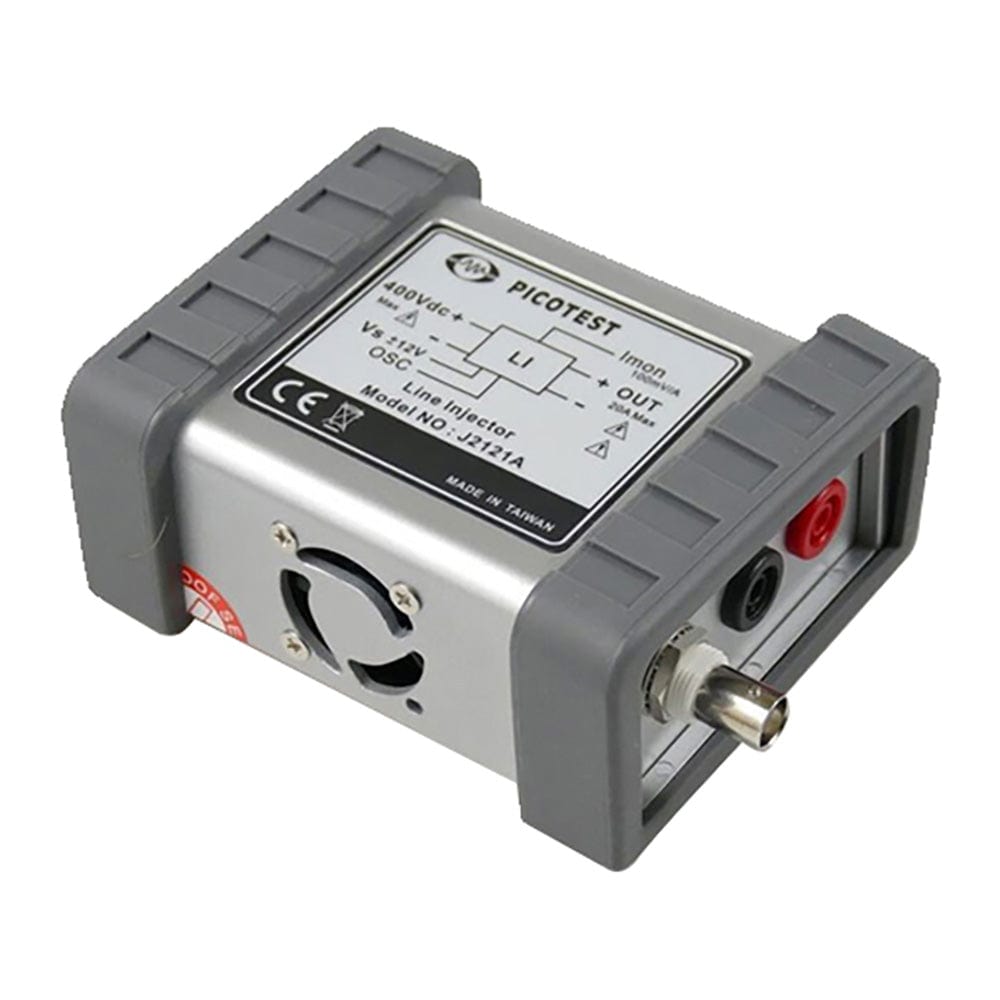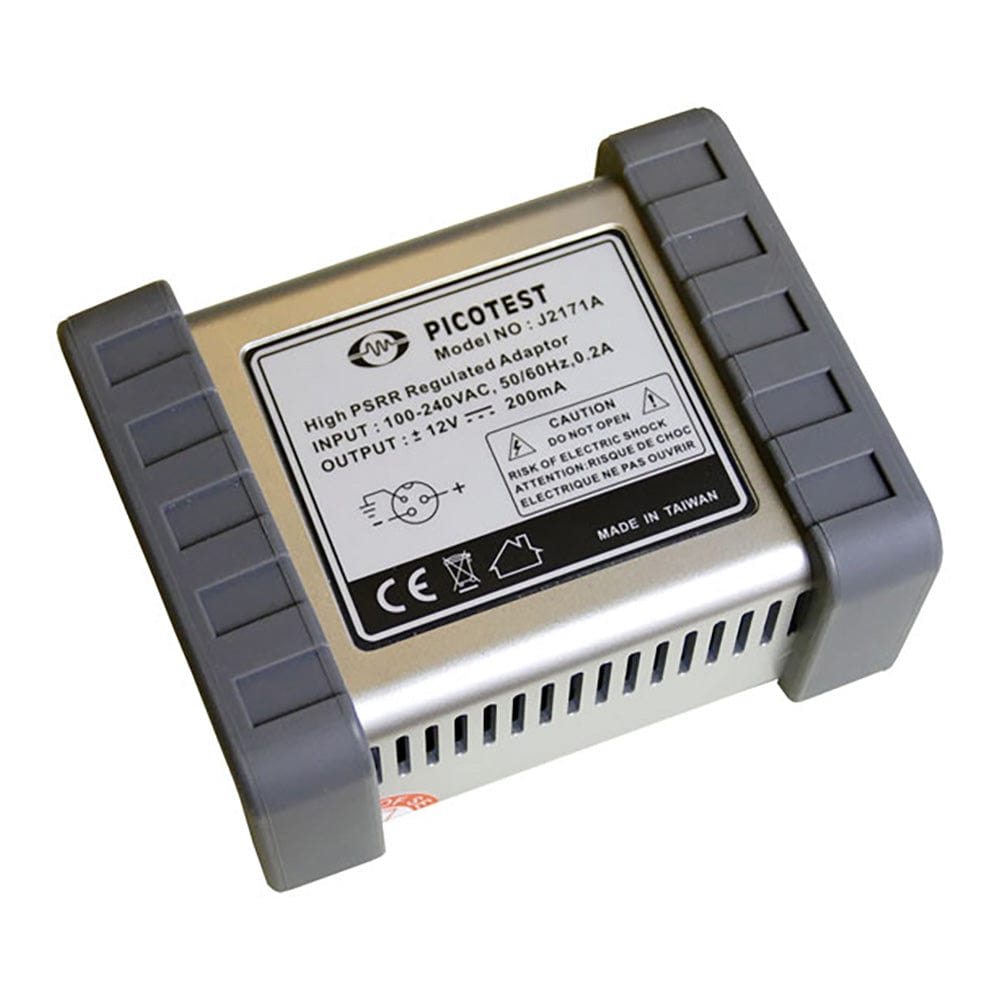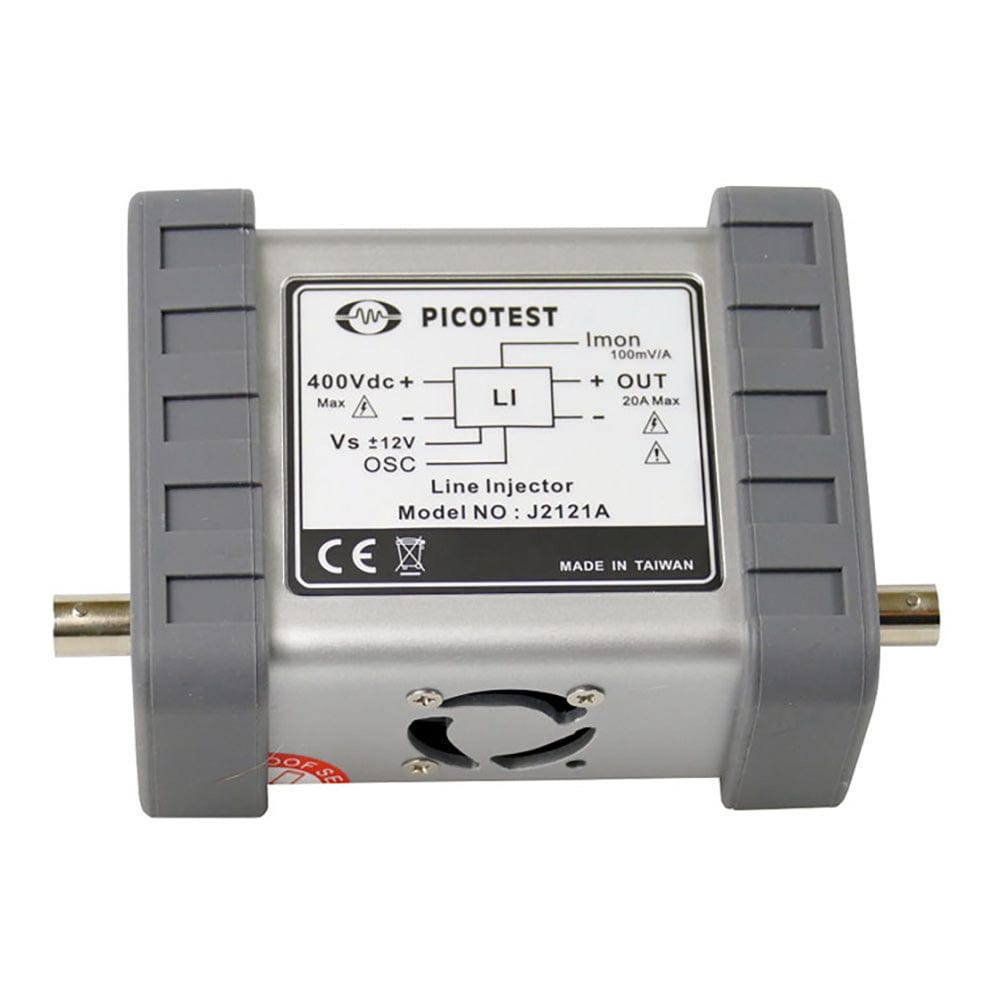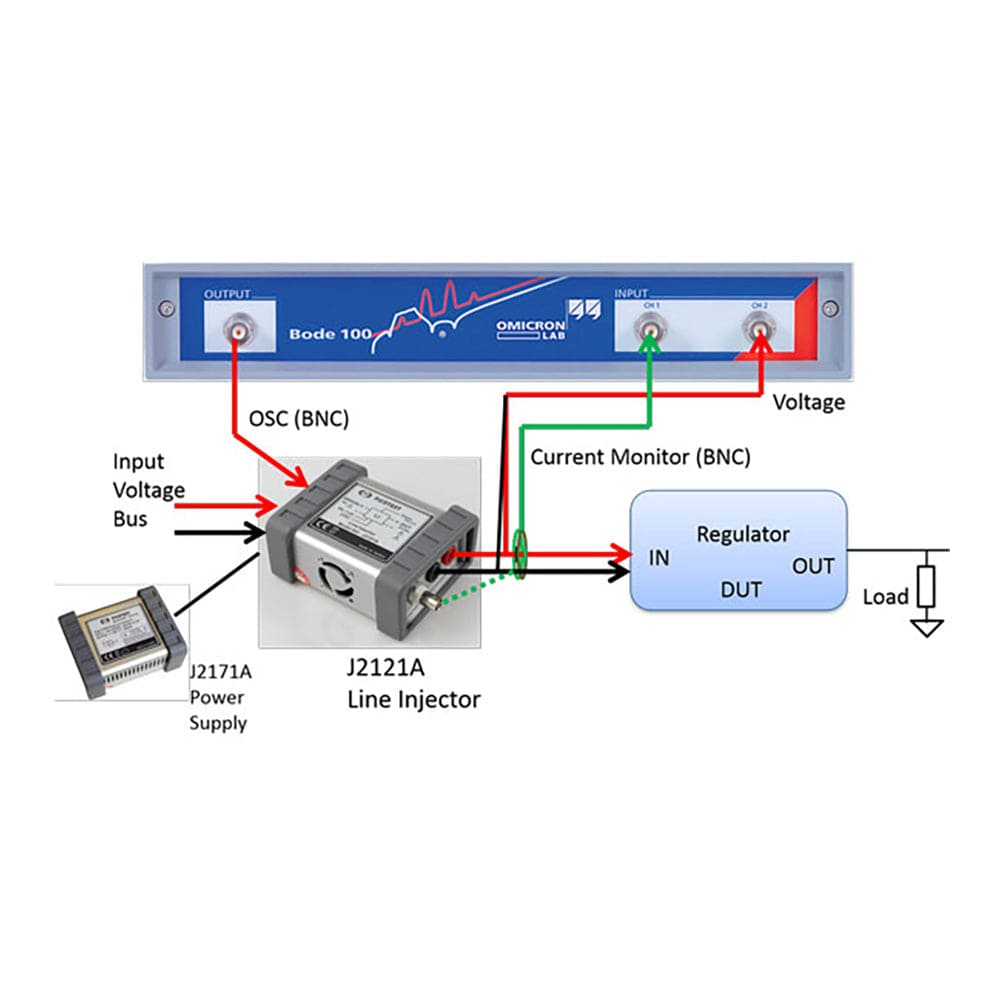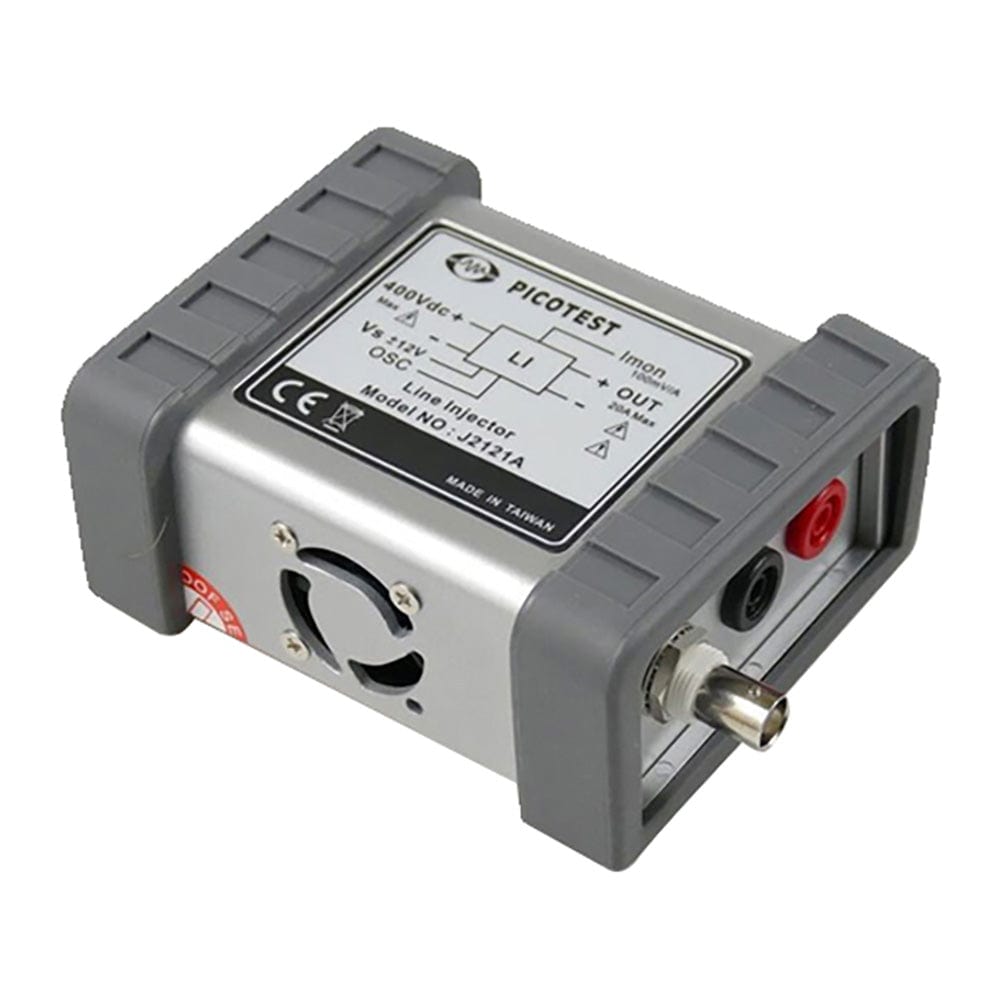
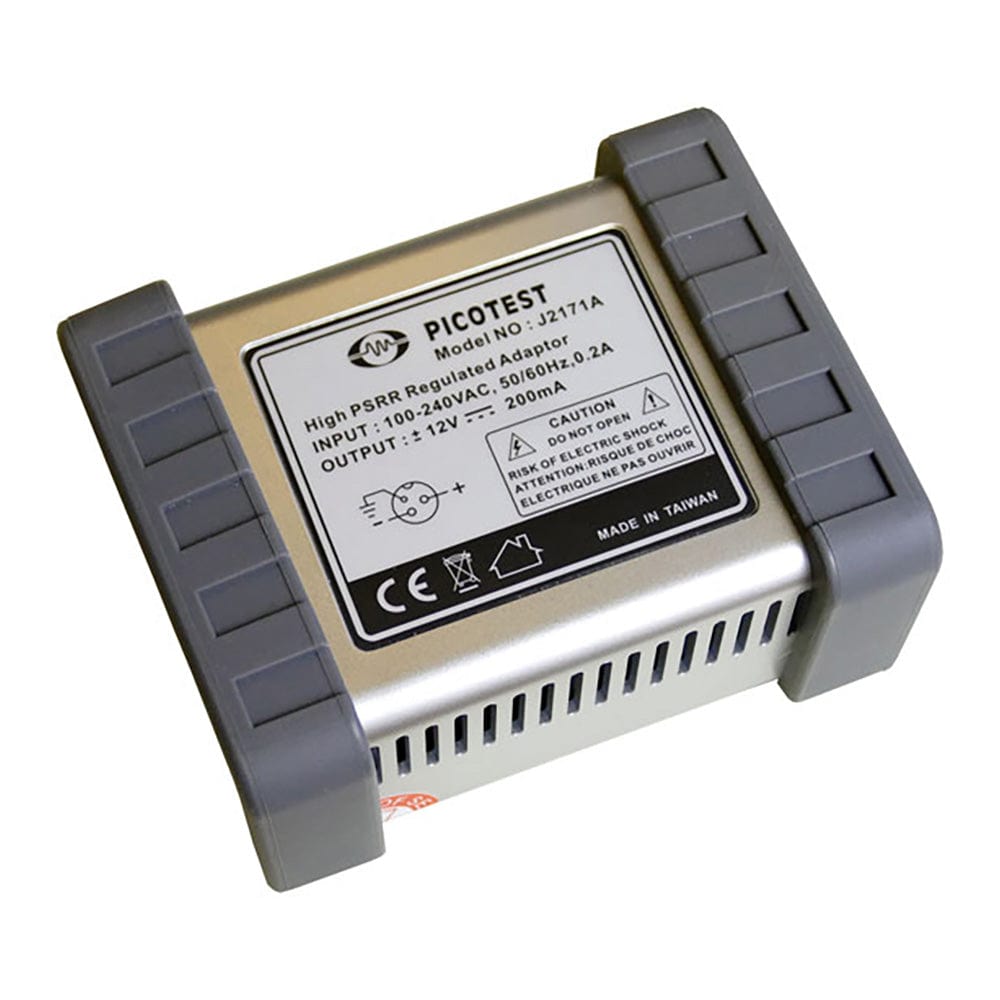
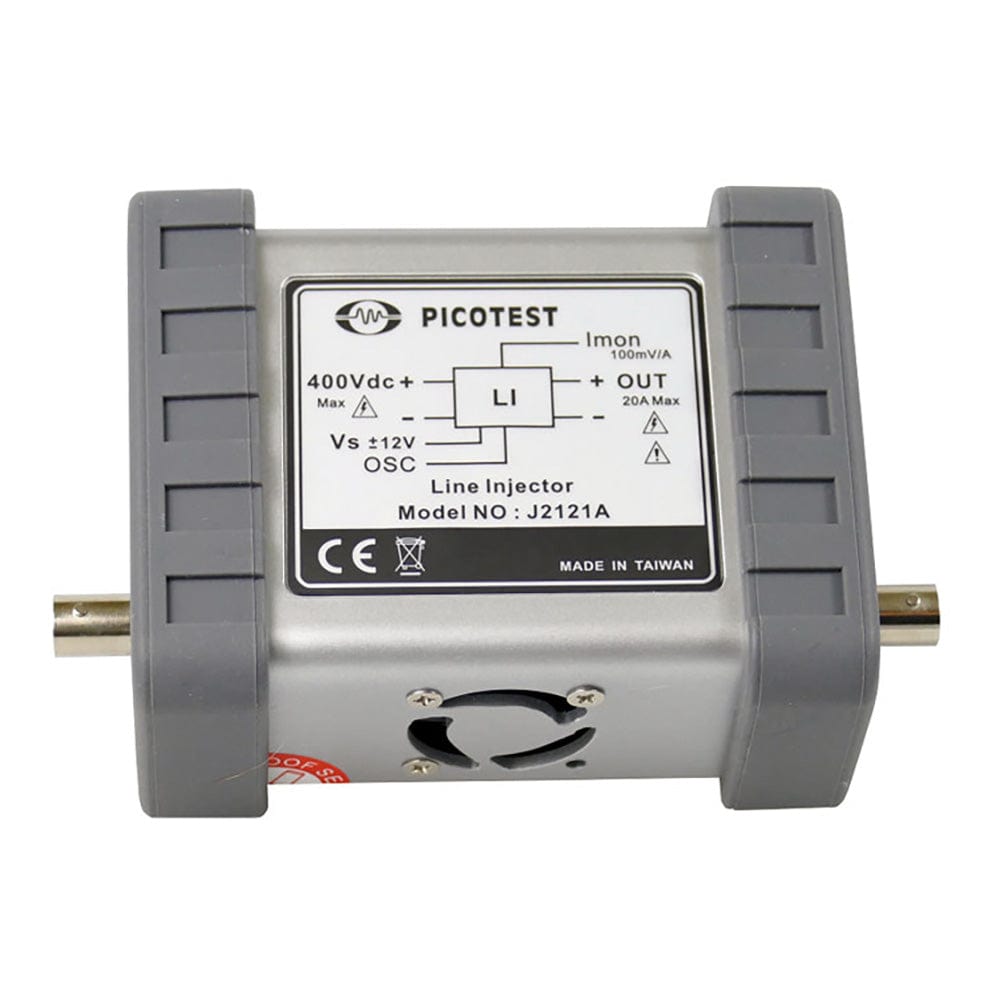
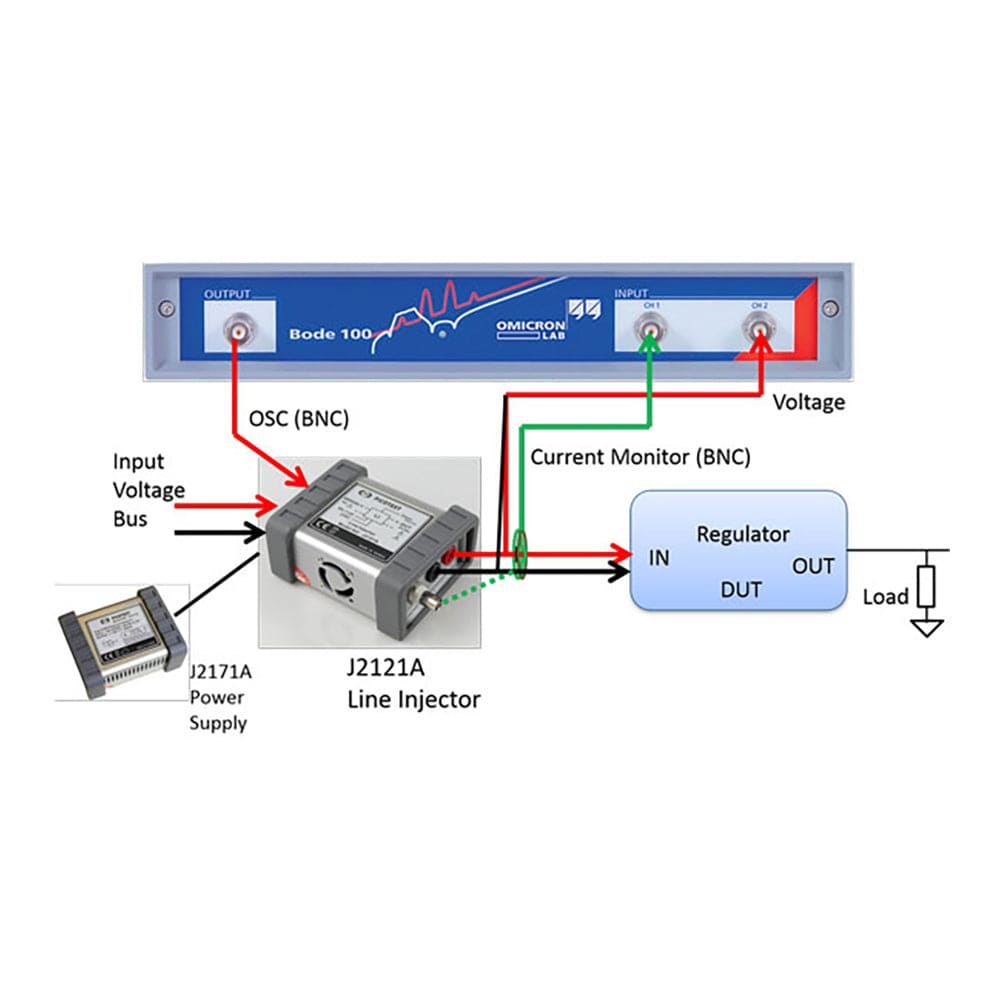
Key Features
Overview
The Picotest J2121A High Power Line Injector enables precise power supply rejection ratio (PSRR) and input impedance measurements for high-voltage applications up to 400VDC and 20A continuous current. Designed specifically for military and satellite power systems, this advanced test instrument features regulated DC output with fixed 750mV voltage drop and integrated current monitoring for streamlined measurements.
Unlike passive injection transformers, the J2121A accommodates significant DC bias currents whilst maintaining measurement accuracy from 100Hz to 1MHz. The device includes an isolated current sense monitor output that connects directly to vector network analysers, eliminating external current probe requirements and reducing measurement uncertainty.
Complete package includes the J2171A 200mA low-noise power supply, 1Ω calibration fixture for measurement verification, and comprehensive user documentation. The fan-cooled design ensures reliable operation during extended test sessions, making it ideal for production environments and research laboratories requiring high-power PSRR characterisation.
Downloads
Why Engineers Choose The Picotest J2121A High Power Line Injector - 400V/20A
High-Power Capability
Measurement Accuracy
Complete Solution
Professional High-Power PSRR Testing for Military and Satellite Applications
The Picotest J2121A High Power Line Injector represents the pinnacle of power supply rejection ratio (PSRR) testing capability, engineered specifically for high-voltage, high-current applications in military and satellite power systems. This advanced test instrument enables engineers to inject precise modulation signals into DC power lines whilst maintaining electrical isolation and measurement accuracy across a wide frequency spectrum.
How PSRR Measurement Works
Power Supply Rejection Ratio testing quantifies how effectively a power supply or regulator attenuates unwanted AC signals on its input from appearing at the output. The J2121A modulates the input DC supply voltage using a network analyser source signal, creating controlled disturbances that simulate real-world noise conditions. Engineers measure both input and output signals to calculate the rejection ratio as 20×log(Vinput/Voutput).
Wiring Quick-Start
Basic PSRR Measurement Setup:
- Power Connections: Connect J2171A power supply to J2121A proprietary power connector
- Input Power: Connect DC supply positive to red banana jack (+), negative to black banana jack (-)
- Signal Injection: Connect VNA source output to BNC modulation input
- DUT Connection: Connect J2121A output banana jacks to device under test input
- Current Monitoring: Connect current monitor BNC output to VNA channel 1
- Voltage Measurement: Connect high-impedance probe to DUT output for VNA channel 2
| Connection Point | Connector Type | Function |
|---|---|---|
| DC Input +/- | 4mm Banana Jacks (Female) | 400VDC @ 20A Maximum |
| Modulation Input | 50Ω BNC | 6dBm Recommended Signal Level |
| Current Monitor | BNC | 100mV/A Scale Factor |
| Power Input | Proprietary (J2171A) | 200mA Low-Noise Supply |
DC-DC Converter Input Impedance Testing
Beyond PSRR measurements, the J2121A excels at characterising DC-DC converter input impedance—a critical parameter for avoiding negative resistance instabilities in power distribution networks. The integrated current monitor eliminates the need for external current probes, streamlining the measurement process whilst maintaining accuracy.
// Example calculation for input impedance Z_input = V_modulation / I_monitor // Where I_monitor = V_current_out / 100mV/A // Frequency sweep from 100Hz to 1MHzComparison with J2120A Line Injector
The J2121A addresses applications where the popular J2120A's 50V/5A limits prove insufficient. Key advantages include 8× higher voltage capability, 4× higher current rating, active regulation maintaining constant 750mV voltage drop, and integrated Hall-effect current monitoring that eliminates external probe requirements.
Frequently Asked Questions
Have a Question?
-
Does the J2121A require external cooling?
The J2121A includes integral fan cooling for reliable high-power operation. Ensure adequate ventilation around the unit and avoid blocking cooling vents during operation.
-
What safety precautions are necessary when using the J2121A?
Always observe the 400VDC maximum rating. Ensure proper grounding, use appropriate personal protective equipment, and verify all connections before applying power. The device includes internal protection but safe operating procedures are essential.
-
Can the J2121A work with oscilloscopes for PSRR measurements?
The current monitor output is optimised for vector network analysers and may not provide sufficient sensitivity for oscilloscope-based measurements. VNAs offer superior dynamic range and accuracy for PSRR testing.
-
Is calibration required before measurements?
Use the included 1Ω calibration fixture to verify measurement accuracy. This practice ensures traceability and validates the complete measurement chain before conducting critical tests.
-
What frequency range does the J2121A cover?
The measurement bandwidth extends from 100Hz to 1MHz, covering the full frequency range needed for power supply PSRR characterisation and DC-DC converter analysis.
-
What is the voltage drop through the J2121A?
The J2121A maintains a regulated 750mV voltage drop from input to output across the full current range. This active regulation ensures measurement accuracy regardless of load conditions.
-
Can the J2121A measure DC-DC converter input impedance?
Yes, the J2121A excels at input impedance measurements using the integrated current monitor output. This capability is essential for characterising negative resistance effects and ensuring power distribution network stability.
-
What equipment is needed to perform PSRR measurements with the J2121A?
You need a vector network analyser or frequency response analyser, such as the Bode-100, the included J2171A power supply, a DC voltage source for your test voltage, and the device under test. High-impedance voltage probes are recommended for output measurements.
-
How does the J2121A differ from the J2120A Line Injector?
The J2121A provides 8× higher voltage capacity (400V vs 50V), 4× higher current rating (20A vs 5A), active voltage regulation with fixed 750mV drop, and integrated current monitoring. The J2120A offers ultra-low noise for sensitive low-power applications.
-
What is the maximum voltage and current the J2121A can handle?
The J2121A supports up to 400VDC input voltage and 20A continuous current, making it suitable for high-power military and satellite bus applications up to 270V operational voltage.

